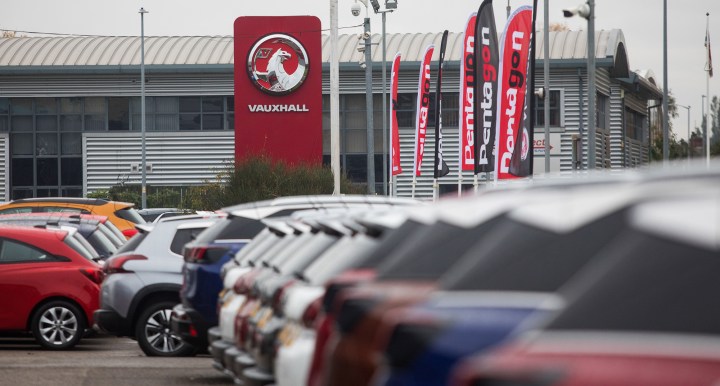COMPANIES
Motus motors ahead with healthy interim results fuelled by diversification and offshore exposure

The diversified automotive group, which offers aftermarket, mobility solutions, new car sales and rentals, reports an increase in operating income of 22%.
Diversification and international exposure are at the heart of Motus Holdings Limited’s strong showing for the six months ended 31 December, as the automotive group posted healthy growth in its aftermarket, mobility solutions and car rental divisions.
New car sales might have been pancake-flat, particularly in South Africa and the UK, but group-wide operating income is up a healthy 22%.
Retail business is also on the up, increasing by 30%, while import distribution is up 12%.
In short, Motus might have sold fewer units of vehicles, but it made a mint off them.
The market didn’t seem impressed by the declaration of a 300c interim dividend (a 9% year-on-year increase) though, to be paid out on 20 March, as the share price was down by 5.2% at closing.
Revenue is up 14% to R51.2-billion (compared with R44.8-billion in 2021), with an increase in operational performance of 25%, from R2.96-billion over the same period in 2021 to R3.7-billion. Profit before tax increased 7% to R2-billion.
Operating profit increased by 22% to R2.62-billion from R2.15-billion year on year.
Earnings per share grew by 17% to 916c.
In a statement, Motus said its strong, “strategically aligned” operational performance came about against the backdrop of challenging trading conditions across all the geographies in which the group operates.
Besides SA and the UK, Motus has a presence in Australia and limited exposure to southeast Asia, and southern and east Africa.
In context: the six-month results are a snapshot of an otherwise disparate year. Motus CEO Osman Arbee told Business Maverick that in December 2021, they had many cars available when there was a shortage, which is why Motus did particularly well. By December 2022, the situation started normalising.
“We sold a lot more vehicles in that half. By September, I’m [sic] looking flat, but everyone else had cars as well. Then there was a shortage of vehicles which, if I had another 5,000 cars, I could have sold them. I couldn’t supply the car rental companies because I only had enough for dealerships, so I put the vehicles through the dealership network.”
Visit Daily Maverick’s home page for more news, analysis and investigations
That strategic decision paid off handsomely for the group, as revenue increased by 14%, supported by acquisitions, increased contributions from the sale of parts and rendering of services, as well as from the sale of new and pre-owned vehicles.
In addition to their revenue contributions, operating profit contributed to operating profit of R2.6-billion (22% increase), stifled by inflationary cost pressures in all the geographies.
The group’s passenger and commercial vehicle businesses worldwide sold 66,147 new units (2021: 66,705), and 43,422 pre-owned units (2021: 47,533) during the period.
Its aftermarket parts segment reported an increase in revenue and operating profit of 36% and 35%, respectively.
Its South African business contributed positively to revenue and operating profit, despite an operating environment characterised by muted consumer spend and increased freight, container and raw material costs.
Rolling blackouts are also having an effect. The group has already invested about R100-million on mitigating the effects of rolling blackouts and, over the next 18 months, it will be looking to spend another R250-million.
The impact on its operations is not as great as in the aftermarket parts business, affecting Motus customers’ businesses, he says.
“If you are a parts shop in Soweto or in Troyeville, you can’t afford to run generators and inverters for long. So, as a result, since my customers are generally owner-managed businesses, their shops have a problem, so they buy less,” he says.
Another factor is the effect on call centres, where they sell insurance products through their mobility solutions: The centre might be functional during blackouts, but when their agents try to make sales calls, customers battle with cellular signal as the towers are down.
Motus is not a typical motor business. Its diversification has helped it balance international exposure and weather some storms.
“We’re selling new and pre-owned cars. We’ve got big business in aftermarket parts and we’re now in South Africa, the UK [and Australia].
“We’ve got mobility solutions and the car rental business, so we get a fair balance between our dependency on new and pre-owned cars, and our workshops on the one side.
“These businesses make up about 43% of my income. It’s a nice balance.” BM/DM


















Comments - Please login in order to comment.